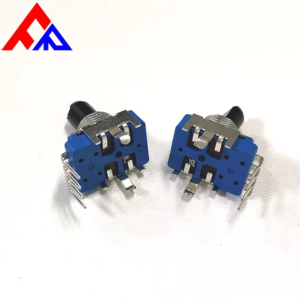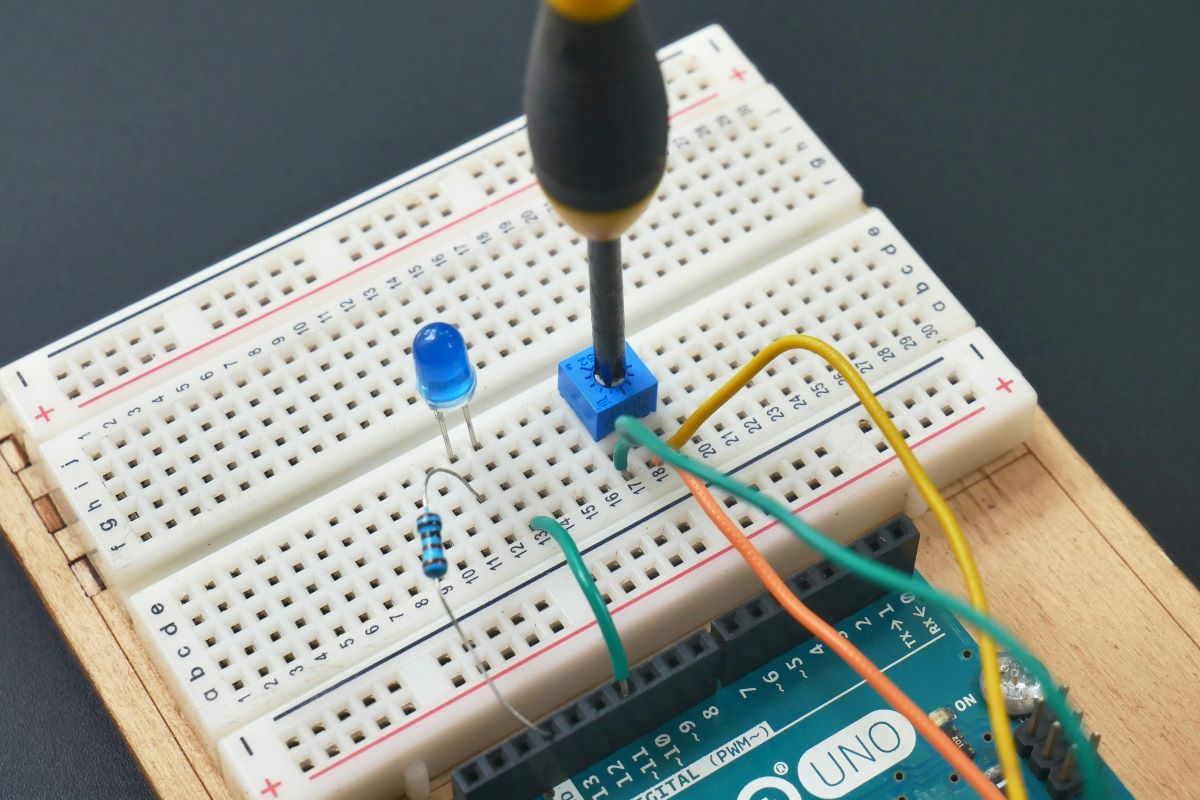In control systems, precision is everything. In robotics, industrial automation, and motion control systems, data accuracy directly impacts performance. An absolute encoder for control systems enhances both accuracy and efficiency. By incorporating this technology, systems achieve greater precision, leading to improved overall performance. This article will explore how absolute encoders work and the many ways they enhance control system performance.
 What is an Absolute Encoder?
What is an Absolute Encoder?
An absolute encoder is a type of rotary encoder that provides a unique, absolute position value for every point of rotation. Unlike incremental encoders, which only track changes in position, an absolute encoder gives a direct, unambiguous output, meaning that even after a power failure, it retains the exact position data. This feature is crucial for systems requiring high precision and reliability.
For control systems, where accurate positioning and movement are vital, an absolute encoder provides a key benefit—eliminating the need for recalibration after power interruptions. With this accuracy, control systems can maintain optimal performance and reduce error margins.
Improving Accuracy with Absolute Encoders
1. Real-Time Position Feedback
An absolute encoder for control systems offers continuous real-time feedback of the position, ensuring that control systems know exactly where the machine or component is at all times. This level of feedback is invaluable in applications where even the smallest positional error can have significant consequences. For example, in robotics or CNC machines, precise movements are critical, and even a slight deviation could lead to faulty product manufacturing or machine wear.
2. Higher Resolution and Fine-Tuning
One key advantage of using an absolute encoder is its high resolution. This feature allows for finer control and precise measurements. It is especially crucial in applications requiring detailed, incremental adjustments. Absolute encoders deliver highly accurate positional data, ensuring the control system makes adjustments with the finest level of detail.
3. Non-Volatile Memory
Absolute encoders store position data directly in memory, eliminating the need for reset or recalibration after power loss. This feature prevents downtime caused by system failure. In industries like manufacturing or material handling, avoiding downtime is critical. An absolute encoder ensures the system always resumes from the exact position where it stopped.
Improving Efficiency in Control Systems
Ⅰ. Reduced Complexity
By eliminating the need for additional sensors or recalibration routines, absolute encoders simplify the control system architecture. This reduction in system complexity leads to a more streamlined and efficient control system, allowing for faster response times and fewer points of failure. In industries where time-sensitive tasks are crucial, this added efficiency is invaluable.
Ⅱ. Consistent and Reliable Performance
Absolute encoders enable systems to maintain a continuous, stable feedback loop, ensuring peak efficiency at all times. Unlike incremental encoders, which require complex counting algorithms, absolute encoders provide immediate, consistent position readouts. This reduces processing time, streamlining data interpretation and improving overall system efficiency.
Ⅲ. Energy Savings
Since absolute encoders don’t require recalibration or continuous updates from an external source, they can help reduce the energy consumption of the entire system. They operate with a high level of efficiency, meaning less power is required for the same output. This is especially beneficial in large control systems where energy efficiency is a priority.

Applications of Absolute Encoders in Control Systems
Industrial Automation
In automation systems, precision is key. An absolute encoder for control systems ensures that machinery functions with minimal error, which improves throughput and reduces waste in manufacturing processes.
Robotics and Motion Control
For robotics, precise movement is essential. Absolute encoders are commonly used in robotic arms, conveyors, and even drones, where fine-tuned control is needed for performing tasks accurately.
Automated Vehicles and Conveyors
Automated systems in the automotive and materials handling industries rely on absolute encoders to track movement in vehicles and conveyor belts, improving their reliability and efficiency.
The Benefits of Using Absolute Encoders
Improved Accuracy
The primary advantage of absolute encoders is their ability to provide precise, accurate position feedback, even after power disruptions, making them ideal for mission-critical applications.
Enhanced Efficiency
With reduced complexity and energy usage, absolute encoders help enhance the operational efficiency of control systems by ensuring continuous and consistent data output.
Reduced Maintenance Costs
Since absolute encoders don’t require frequent recalibration, maintenance costs are minimized. This translates into lower operating costs and reduced system downtime.
Conclusion: Why Choose an Absolute Encoder for Control Systems?
An absolute encoder for control systems is an essential component for applications requiring high precision and reliability. With their ability to improve accuracy, enhance system efficiency, and reduce downtime, absolute encoders are the preferred choice for industries looking to optimize their control systems.
At Fanrui, we specialize in providing high-quality absolute encoders for control systems, designed to meet the most demanding performance requirements. Whether you’re in automation, robotics, or any other precision-driven industry, our products ensure that your control systems function with the utmost accuracy and efficiency.





